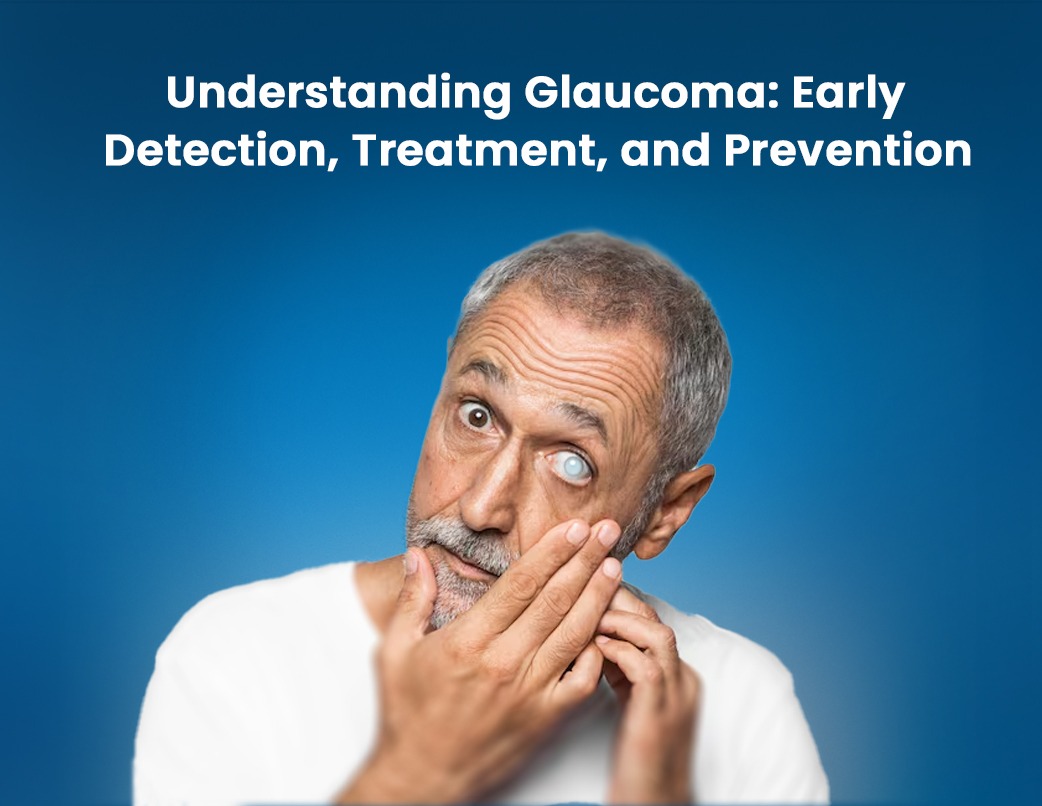
Have you ever experienced blurred vision, flashes of eye pain, or light halos? They may be trifling vision issues, but they could be the start of glaucoma, a “silent” illness that gradually ruins your eyesight. Glaucoma typically occurs in most cases without clear symptoms until loss of vision becomes permanent. It is therefore important to be cautious and get regular eye check-ups at the Best Eye Care Hospital in Perinthalmanna before it’s too late.
Understanding how Glaucoma arises, how you can be screened for it in its early stages, and how it is treated can help you save your sight and have healthy eyes throughout your entire life.
Glaucoma is a group of eye conditions that damage the optic nerve, which is needed for conveying visual information from your eyes to your brain. The most common reason is raised intraocular pressure (IOP) in the eye. When the pressure builds up, it can lead to progressive damage to the optic nerve fibres and cause blindness.
There are two types of glaucoma: open-angle glaucoma, which is a slowly progressive condition over the years, and angle-closure glaucoma, which occurs acutely and can cause painful loss of vision. Since signs and symptoms are typically noted only in late stages, regular screening intervals will be necessary for early diagnosis.
Glaucoma usually occurs silently without noticeable signs and therefore early detection is essential. Eye ache, tunnel vision, or problem adjusting to dark rooms are some of the indications in the initial stages but most individuals do not experience symptoms until extensive damage has already occurred.
To detect glaucoma in time, you need to get regular eye tests particularly when you are above 40 years, diabetic, hypertensive, or have a family history of glaucoma. Tonometry (test of eye pressure), optical coherence tomography (OCT), and visual field testing allow physicians to diagnose the disease at its initial stage. Best Eye Care Hospital in Malappuram is one where you can trust in accurate testing and qualitative analysis by skilled ophthalmologists.
Glaucoma cannot be cured totally, but its progression can be managed well with proper treatment. The decrease of intraocular pressure and avoiding optic nerve damage are the most critical treatment goals.
Treatment may include eye drops and tablets to laser and surgery. Laser eye surgery can help improve drainage of the fluid, and the latest surgeries like trabeculectomy or MIGS can last for a long time. For personalised treatment and advice, a consultation with the Best Cornea Specialist in Perinthalmanna will ensure that you receive a personalised treatment plan based on your condition.
Although glaucoma cannot always be prevented, detection at an early stage and frequent follow-up can significantly reduce the chances of vision loss. Make it a point to schedule regular eye checks, wear protective eyewear when needed, eat antioxidant-rich foods, and manage underlying diseases like diabetes or high blood pressure. These precautions go a long way in ensuring healthy vision.
If you do happen to have any of the rare visual changes, eye pressure changes, or persistent headaches, consult a professional at the earliest. Early treatment can make a lasting difference.
Glaucoma may not be noticed, but if untreated, the resulting destruction is disastrous. Early diagnosis, and proper treatment are the ingredients that secure your eyesight. Don’t wait until symptoms get severe, book your comprehensive eye checkup today at Best Eye Care Hospital in Perinthalmanna and protect your vision for life.